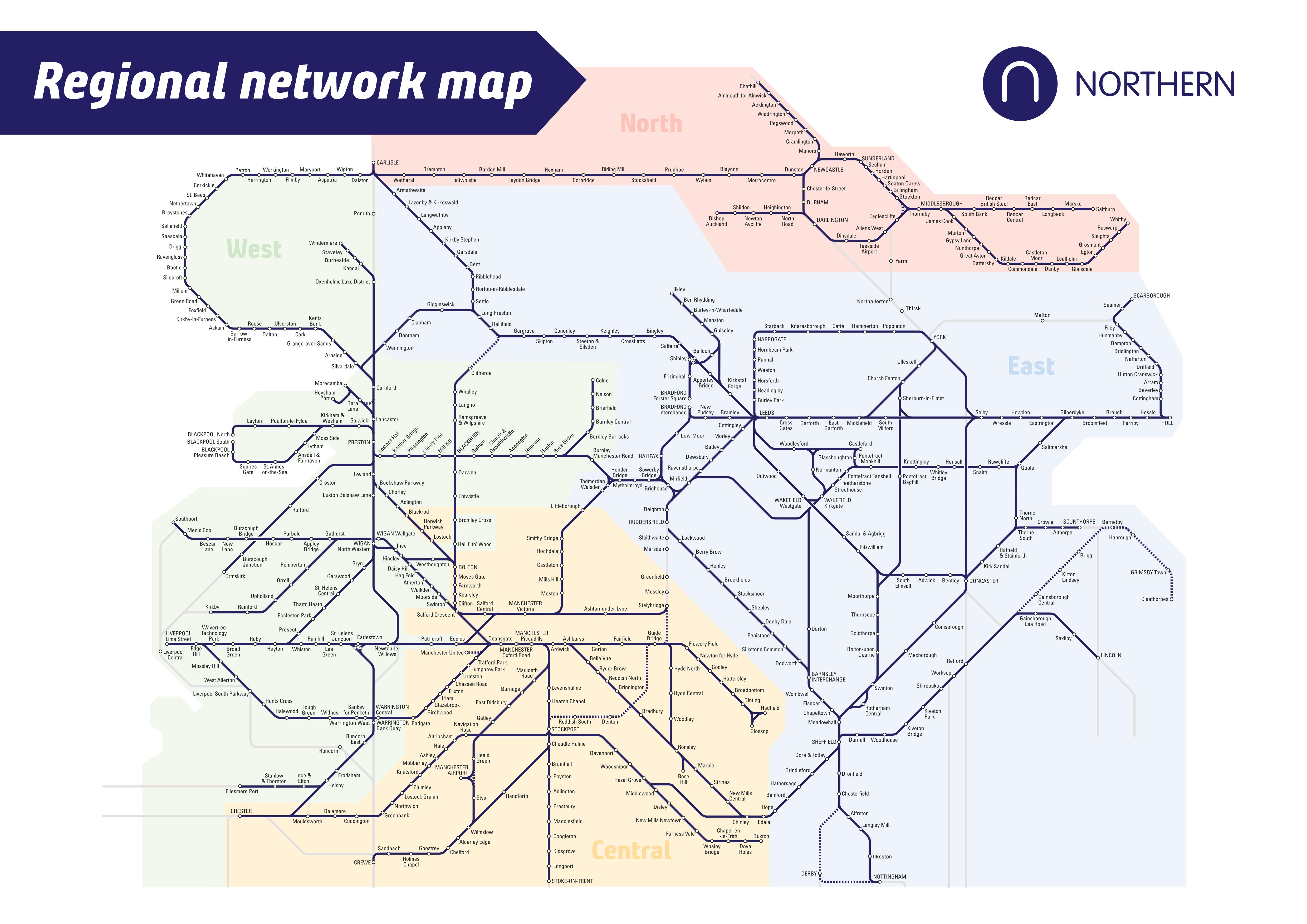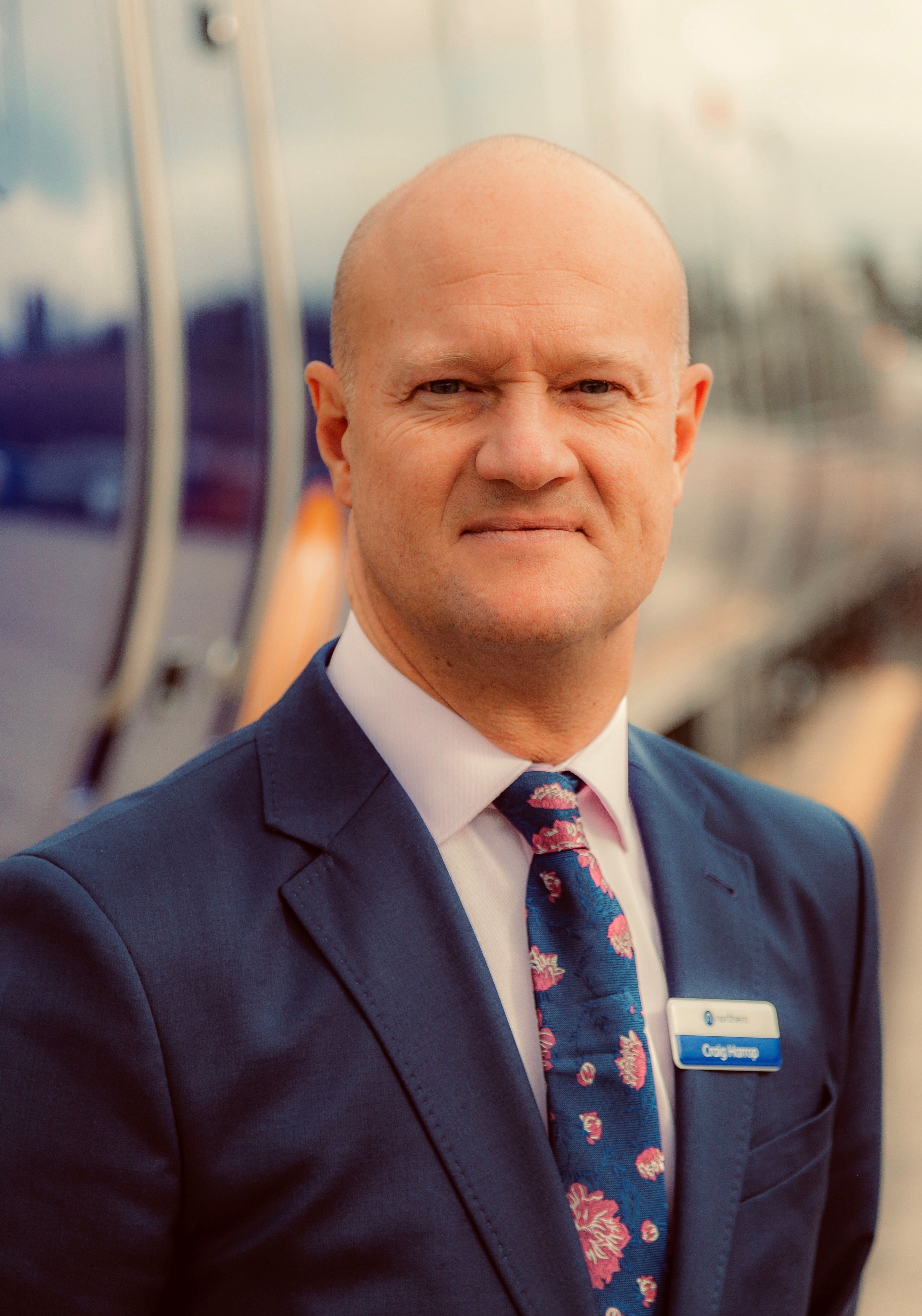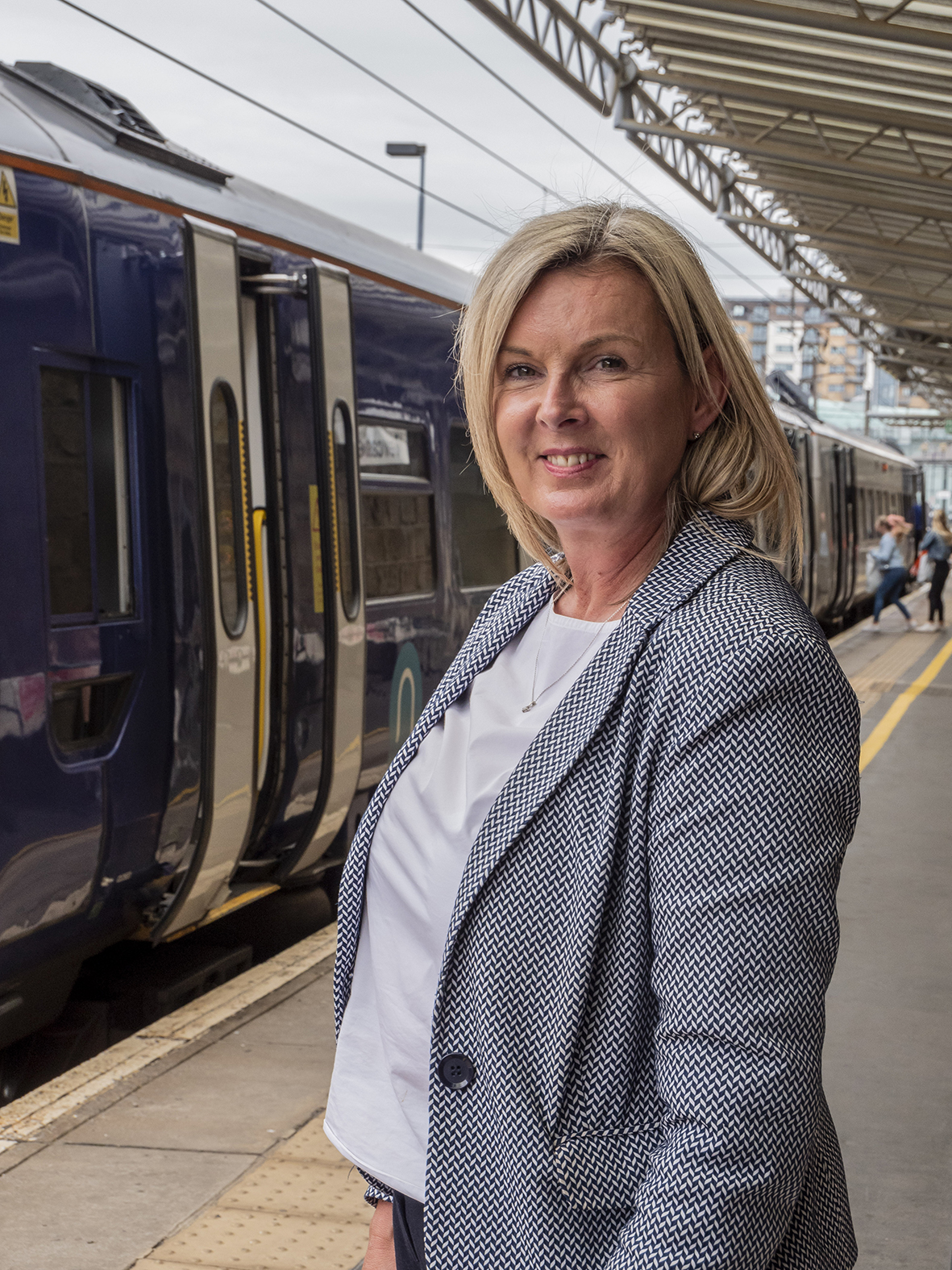Our network and timetables
Our network
Our network is split into four regions:
- West
- Central
- East
- North East
View our network map.

Our regional teams are each led by a regional director. They are responsible for operations and stakeholder relationships in their region.
West and Central
Craig Harrop, Regional Director (interim)
West and Central regions cover a vast area connecting people with major cities and city regions, including Greater Manchester – the second largest urban area in the UK. Our services also bring people to popular tourist locations like the Lake District National Park.

Key facts about the regions:
- We operate services to more than 200 stations.
- The busiest station by passenger numbers is Manchester Victoria.
- Around 3,300 employees, including a 300-strong maintenance team.
- We have a 200-strong TrainCare presentation team.
- The main TrainCare centres are located at Allerton and Newton Heath.
East
Kerry Peters, Regional Director
Our East region covers North, East and West Yorkshire along with North Lincolnshire and down to Nottingham. Major cities we serve include Leeds, York, Hull, Halifax, Huddersfield, Barnsley and Sheffield. The region also connects people with the beautiful Yorkshire Coast and Dales.

Key facts about the region:
- We operate services to more than 160 stations.
- Leeds is the busiest station in the region and is the largest train crew depot in the UK.
- More than 1,800 employees work in the region.
- The region’s main TrainCare Centre is located at Neville Hill, Leeds.
North East
Jason Wade, Regional Director
Our services in the North East operate between the cities of Newcastle, Durham, Darlington, Sunderland and Middlesbrough – connecting key economic centres. The Tyne Valley Line runs from Newcastle, west across the North Pennines – connecting people with Northumberland National Park and Hadrian’s Wall. The Durham coast line is another vital part of the network in the region, running services from Newcastle via Sunderland to Middlesbrough and the coast. The Esk Valley line from Middlesbrough to Whitby runs through the North York Moors national park.

Key facts about the region:
- We operate services to more than 60 stations.
- The busiest stations are Hartlepool, Sunderland and Morpeth.
- Around 600 employees in the North East, making us one of the biggest employers.
- More than 150 maintenance employees work in the region.
- We have a 140-strong TrainCare presentation team.
- The region’s main TrainCare Centre is located at Heaton.
Timetables
When our timetables are updated
Our timetables are updated generally twice a year in May and December, which is the same for other train operators in the UK. We also partially change timetables on some routes at different stages in the year. This accounts for things like leaf fall or major engineering work where there's likely to be heavy disruption. This is all coordinated into the National Rail Timetable
Occasionally we may have to make late notice changes to our published timetable. This may be due to operational reasons and improvement work, and we keep customers informed where this is the case. Customers can view all our timetables online, including improvement work timetables. We encourage customers to use the National Rail journey planner for the most accurate service information.
Read a summary of our December 2023 timetable - key changes.
How timetables are developed
Developing rail timetables is a complex process and takes many months. Network Rail is responsible for coordinating and validating rail timetables for the whole country and their work starts 16 months in advance. You can find out more about how rail timetabling works on Network Rail’s website.
Our timetable planning team plays an important role when developing the timetable for Northern services. It’s an enormous logistical exercise and they consider a wide range of factors, such as:
- the likely demand for services
- the need for any changes to calling points or timings of services
- type and length of train
- the train crew to deliver the service
- the need for trains to return to TrainCare Centres for maintenance, fuelling and servicing
- making sure trains can work together with other train operating companies across our network and in busy station areas.
The team considers many other factors as they develop the timetable, before submitting it to Network Rail.
For bigger timetable changes we will share draft timetables with stakeholders and the public before for feedback. This allows people who use the services regularly to let us know how the changes will affect them.


